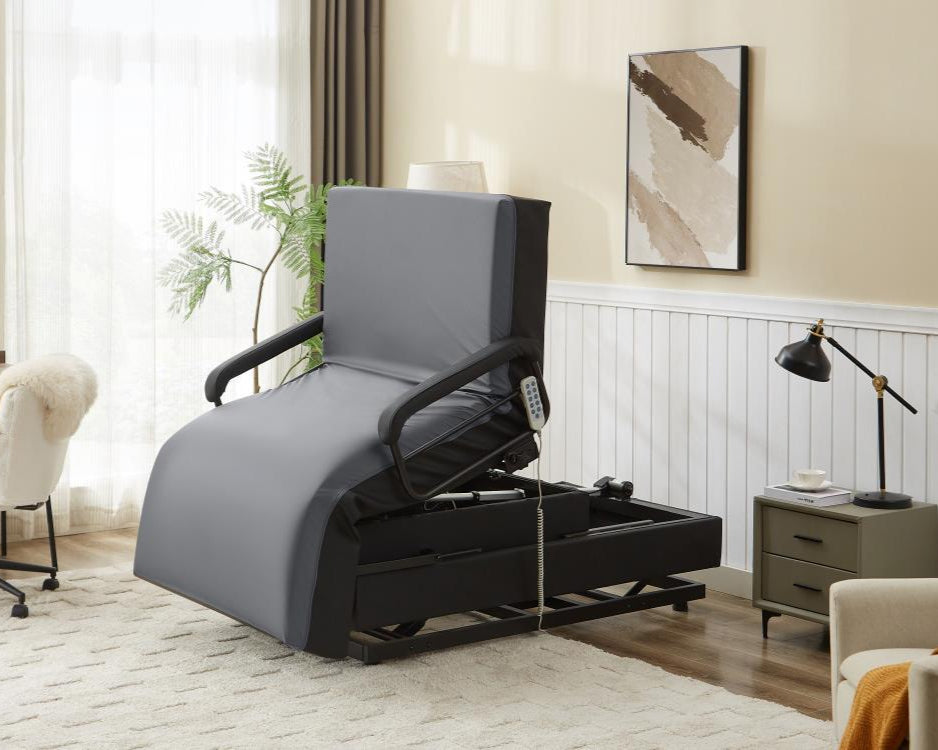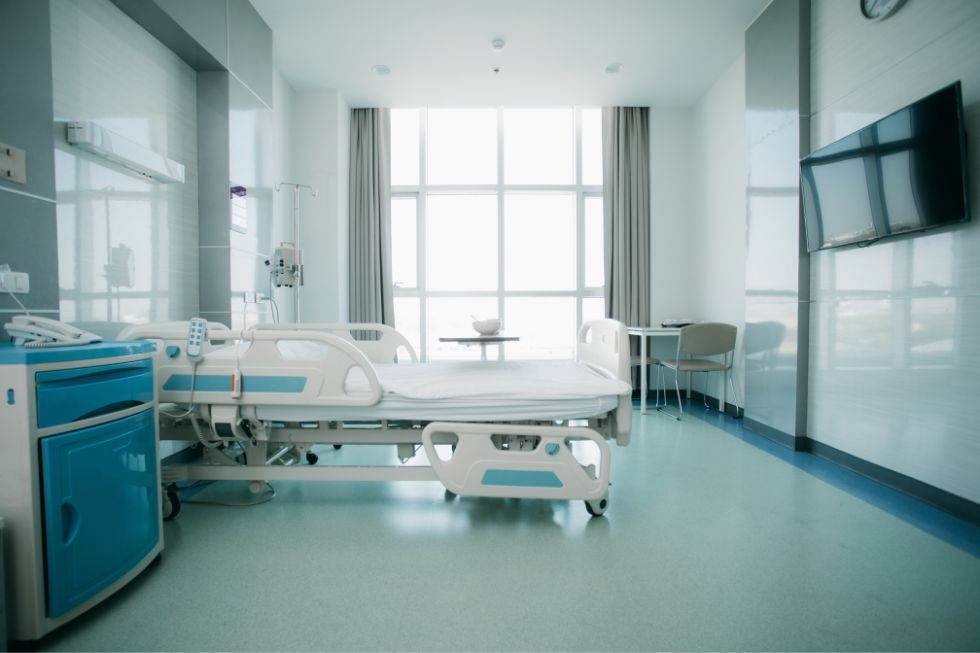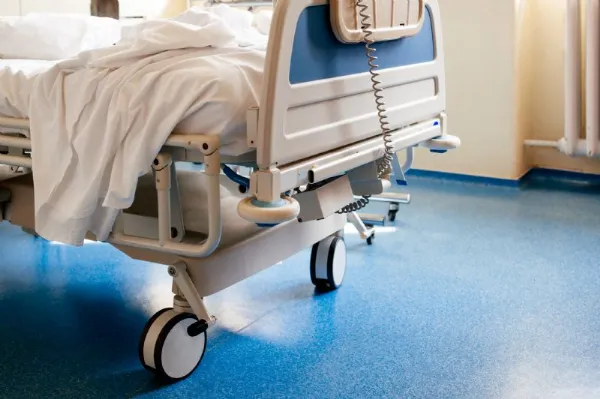The Ultimate Guide To Hospital Beds For Home Use
The Ultimate Guide To Hospital Beds For Home Use
Blog Article
Hospital Beds For Home Use Things To Know Before You Get This
Table of ContentsThe Basic Principles Of Hospital Beds For Home Use How Hospital Beds For Home Use can Save You Time, Stress, and Money.The Best Strategy To Use For Hospital Beds For Home UseThe Buzz on Hospital Beds For Home UseThe 7-Minute Rule for Hospital Beds For Home UseWhat Does Hospital Beds For Home Use Do?A Biased View of Hospital Beds For Home Use
There are 3 main sorts of hospital beds: guidebook, semi-electric, and fully-electric. Even more types of medical beds exist and they are noted below. These beds use hand cranks to change the bed's elevation and raise and lower the head and the foot. Hand cranks are commonly found at the foot of the bed and call for an individual that is physically capable of operating.
Semi-electric beds have an electric motor to elevate and decrease the head and foot portions of the bed (hospital beds for home use). Full-electric beds have an electrical motor that can elevate the head and foot sections of the bed as well as the entire elevation and positioning of the bed.
The Ultimate Guide To Hospital Beds For Home Use
There are numerous kinds of healthcare facility beds, each created to meet specific person demands. Right here are some typical kinds: This is the most common type of medical facility bed, made for general medical use.
Lower to the ground than a basic bed. This kind of bed is developed for bigger patients, with a larger framework and greater weight ability than a basic bed.
This kind of bed is developed for critically ill individuals that require open surveillance and specialized clinical devices such as ventilators and infusion pumps. This kind of bed is made for usage during labor and shipment, with adjustable settings and functions to sustain the mom and infant during the birth process.
The Ultimate Guide To Hospital Beds For Home Use
Numerous function and the accessories execute broadening grip to different parts of the vertebra and the extremities without relocating the body. These are simply a few instances of the sorts of healthcare facility beds offered. The certain type of bed used will rely on the individual's problem, clinical requirements, and various other factors.
Right here is the point you need to understand. A one-function health center bed is a clinical bed that permits a patient to move only the head or foot area up or down. A 2 feature hospital bed usually refers to a kind of clinical bed that has 2 adjustable functions to aid people in hospitals or treatment facilities.

Hospital Beds For Home Use Can Be Fun For Everyone
A 7-function ICU bed is a kind of clinical bed that provides several adjustable features to support critically unwell people in a critical care unit (ICU) (hospital beds for home use). The 7 features usually consist of: Back-rest change: The backrest can be more tips here adjusted to different angles to aid the client stay up or rest conveniently
Elevation modification: The bed can be elevated or decreased to make it less complicated for patients to enter and out of bed, and for caregivers to offer treatment. Trendelenburg placement: The entire bed can be tilted to promote blood flow and blood circulation in the body. Reverse Trendelenburg setting: The bed can also be slanted in the opposite direction to Visit Your URL advertise blood circulation and circulation in the top body.
While more affordable than electric designs, these beds call for physical initiative for adjustments. The primary benefits of hands-on beds are their cost and dependability, as they don't depend on electrical power. The requirement for manual initiative can be a limitation in circumstances where quick changes are essential or where caregivers deal with physical challenges.
The 8-Second Trick For Hospital Beds For Home Use
They are well-suited for clients who call for marginal repositioning for comfort or medical demands. Semi-electric hospital beds use a balance of guidebook and electric controls. The head and foot sections are usually readjusted with electrical controls, while the height is adjusted manually. These beds provide a perfect happy medium in between manual and fully electrical alternatives, providing ease of use without the complete expense of electric models.
Semi-electric beds are fit for patients that need modest modifications to the head and foot areas but can take care of without constant height adjustments. This makes them an affordable remedy for those seeking convenience and convenience without the demand for consistent repositioning. Fully electrical health center beds include electrical controls for smooth modifications to the elevation, head, and foot sections.
Specialty health center beds, such as ICU beds, helpful resources long-lasting treatment beds, and bariatric beds, are thoroughly made to resolve details medical demands. These beds offer customized take care of diverse patient teams, enhancing both outcomes and convenience. In the adhering to areas, we will discover the primary types of specialty healthcare facility beds, describing their certain advantages and applications.
With years of experience in making electric straight actuators - hospital beds for home use and close cooperation with the healthcare market, TiMOTION is well-positioned to give trusted medical care remedies. Our vertically integrated firm handles every step of the manufacturing process, from design to actuator assembly, ensuring we provide extraordinary worth and tailored solutions tailored to your particular needs
Some Of Hospital Beds For Home Use

For more information regarding integrating these technologies into your products, call us today. Further reading:.
Data is sourced from the Medicare Expense Report.

Get This Report about Hospital Beds For Home Use
A medical facility bed is a bed designed specifically for medical objectives. It is not just a place for patients to rest, but also a platform for medical operations. Unlike normal home beds, hospital beds generally have flexible functions, which can assist in medical team to make various modifications according to the needs of clients, such as transforming the elevation, inclination, and support angle of the back and legs of the bed.
Report this page